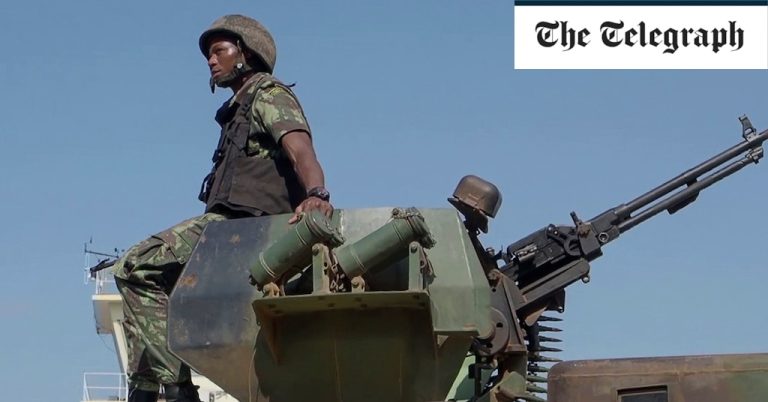The attack was the security forces’ heaviest loss of life since the March 2021 attack on Palma.
There have been other attacks in Chiure, where several churches were burned, as well as in Macomia, Meluco and Quissanga.
Islamic State supporters have hailed the offensive, saying it is part of a wider international push by the group called the “kill them wherever you find them” campaign.
However, analysts say the insurgency is only loosely linked to Islamic State, with the militants driven by local grievances, but taking on the mantle of the notorious group to spread fear and lend their attacks greater publicity.
Borges Nhamirre, a researcher with the Institute of Security Studies, said the insurgents were rising up against neglect, poor governance and discrimination against Muslims.
Since Mozambique gained independence from Portugal in 1975, it has been governed by Frelimo, otherwise known as Frente de Libertação de Moçambique, a democratic socialist political party.
“The militants have rebelled against poor governance by Frelimo over a long period,” said Nhamirre.
Muslims, who make up about 17 per cent of the population and largely live in the north, mostly earn their living from fishing.
“They have long been denied adequate social services like education and health care,” he said. “So there is little loyalty to the state.”
